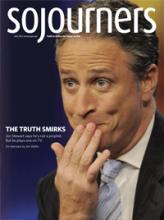We wring our hands about the culture of violence that pervades our nation, and some of us expend enormous energy trying to change our country’s rhetoric from one of war to one of peace. We act locally and from within esteemed national peace groups such as the Fellowship of Reconciliation, Pax Christi, War Resisters League, and the American Friends Service Committee. But the wars—and the worries—persist. What should we do? And how?
Contesting Patriotism gives us a language to talk about our dilemmas. In it, Lynne Woehrle, Pat Coy, and Greg Maney describe the rhetoric used by peace organizations and then give us real solutions as we look to the future.
In academic circles, “to contest” something means to unpack its meaning. The slogan “Peace is Patriotic,” for example, harnesses the word “patriotic” and shows that it can mean something different than its normal use in dominant discourse. That harnessing is one of the strategies peace groups use when a nation’s collective identity is unified. When there is more diversity in thinking, such as in our current time, peace groups move to more oppositional strategies—strategies the authors name as counter-informative, critical-interpretive, radical-envisioning, and transformative rhetoric. Counter-informative rhetoric gives new oppositional knowledge, critical-interpretive rhetoric interprets given facts in critical ways so that people begin seeing events differently. Radical-envisioning and transformative rhetoric show that another world is possible and that other ways of thinking are necessary to bring it about.
Read the Full Article
